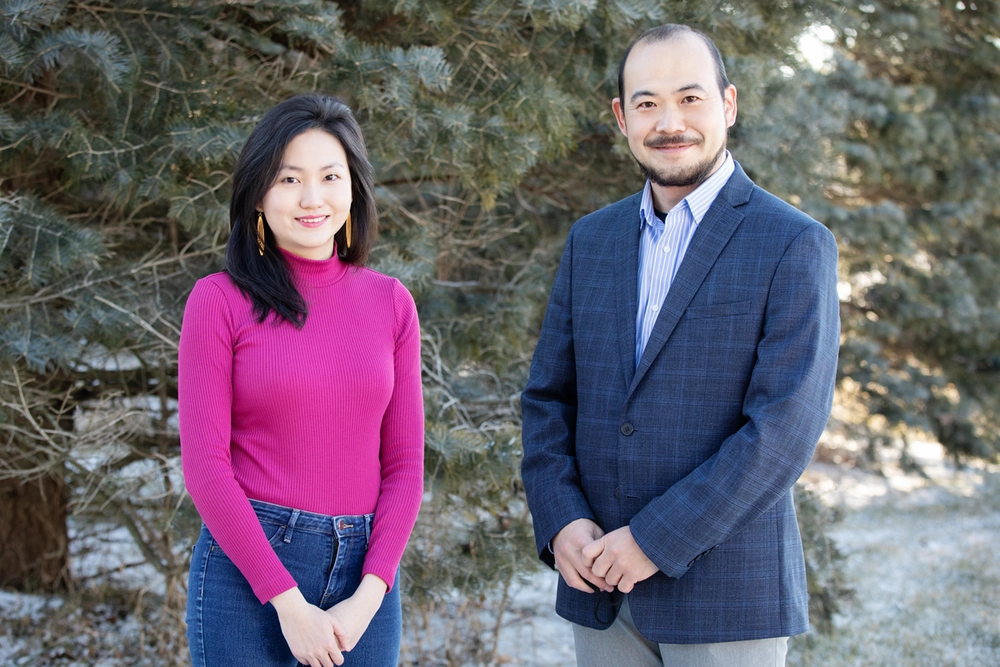
JAN 29, 2021 8:30 AMBY LIZ AHLBERG TOUCHSTONE | BIOMEDICAL SCIENCES EDITOR | 217-244-1073
Childhood trauma could affect the trajectory of multiple sclerosis development and response to treatment in adulthood, a new study in mice found.
Mice that had experienced stress when young were more likely to develop the autoimmune disorder and less likely to respond to a common treatment, researchers at the University of Illinois Urbana-Champaign found. However, treatment that activated an immune-cell receptor mitigated the effects of childhood stress in the mice.
Multiple sclerosis is a progressive autoimmune disease in which the body attacks and strips away the protective coating around neurons, resulting in a wide range of neurological symptoms. Both genetic and environmental factors play a role in MS development.
Previous work has shown that early-life trauma increases susceptibility to developing more severe MS, but researchers have not been able to determine how, said Makoto Inoue, a professor of comparative biosciences at Illinois. In the new study, published in Nature Communications, Inoue’s group studied a mouse model of MS. The mice were genetically susceptible to experimental autoimmune encephalomyelitis, the model most widely used for studying MS.
The researchers watched the development and progression of EAE in mice that had been briefly separated from their mother and given a salene injection while young and compared it with mice that had not experienced the same stress.
“Mice that had early-life trauma were more susceptible to EAE disease development and suffered prolonged motor paralysis with severe neuronal damage in the central nervous system, which we found was caused by a heightened immune response,” said graduate student Yee Ming Khaw, the first author of the study.
The researchers traced the EAE triggers to the immune system – in particular, a receptor on immune cells that binds to the stress hormone norepinephrine. The researchers found that childhood stress in the mice triggered a prolonged release of norepinephrine. The receptor was activated for long periods of time, which led the cells to decrease its expression – leaving the immune system less equipped to respond to the stress and inflammation of EAE.
Importantly, mice that developed EAE after stress in their childhoods did not respond to treatment with interferon beta, one of the initial therapies most widely prescribed to individuals with MS. Meanwhile, the drug effectively prevented EAE progression in mice without childhood stress, Khaw said.
Next, the researchers treated the mice with a compound that boosts the receptor’s response. The treatment prevented paralysis and slowed damage to the spinal cord. In addition, mice that received the treatment responded to interferon beta treatment, though they had not responded before.
“This work suggests that individuals with experience of childhood trauma develop autoimmune disease with symptoms and mechanisms that greatly differ from their peers with no history of childhood trauma, and may need different medical treatment,” Inoue said. “This receptor activator may be a therapeutic drug for MS patients with a history of childhood trauma.”
Next, the researchers plan to verify the mechanisms of the receptor, and to perform translational studies to verify whether boosting the receptor in human patients with MS gives the same benefits as it did for the mice with EAE.
“We believe that the best approach to addressing autoimmune diseases in individuals with a history of childhood trauma or other risk factors is a comprehensive and personalized medicine approach that addresses the whole person,” Inoue said.
The University of Illinois and the Sumitomo Foundation supported this work.
Editor’s notes: To reach Makoto Inoue, call (217) 300-4085; email makotoi@illinois.edu.
The paper “Early-life-trauma triggers interferon-β resistance and neurodegeneration in a multiple sclerosis model via downregulated β1-adrenergic signaling” is available online.
DOI: 10.1038/s41467-020-20302-0 - https://www.nature.com/articles/s41467-020-20302-0